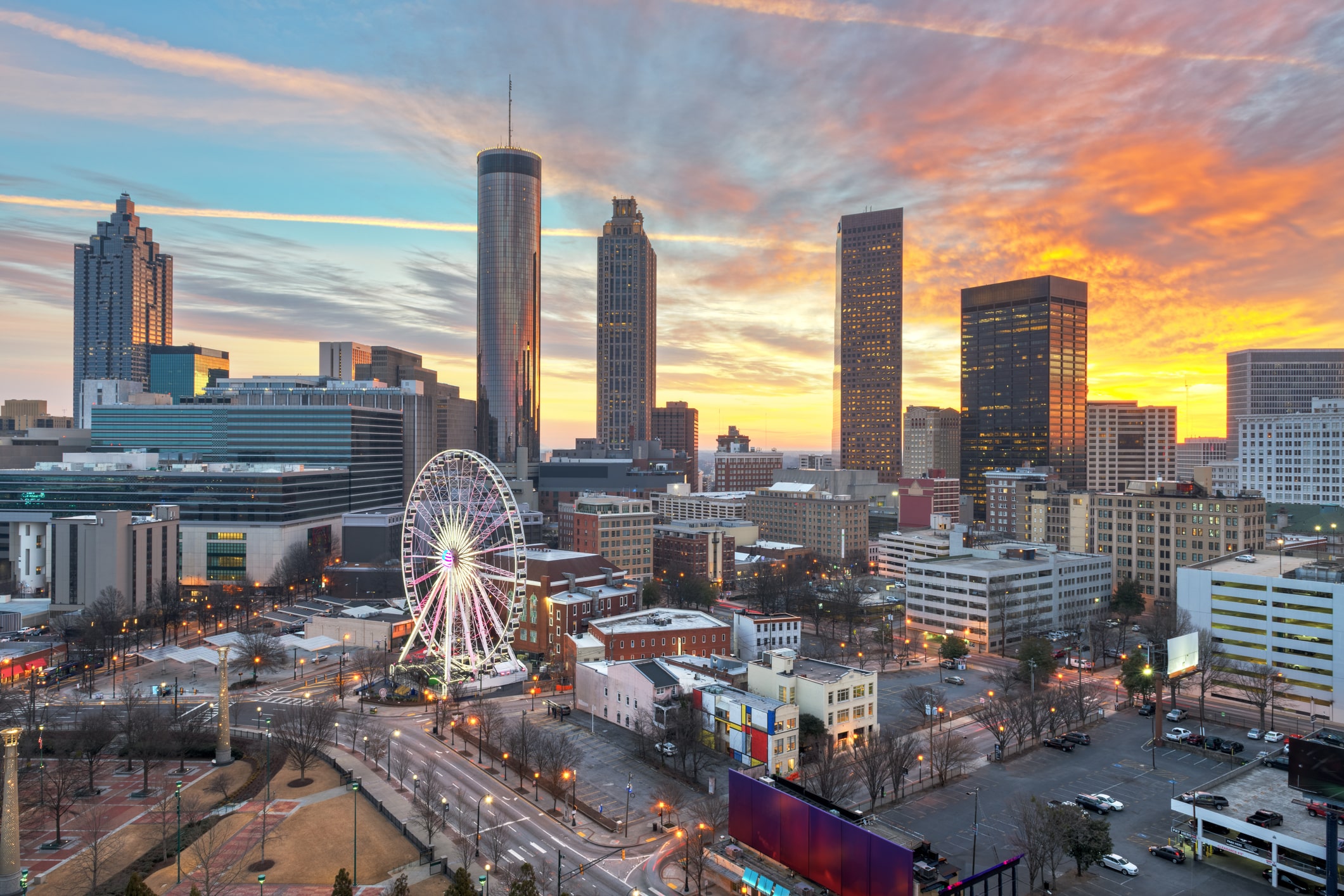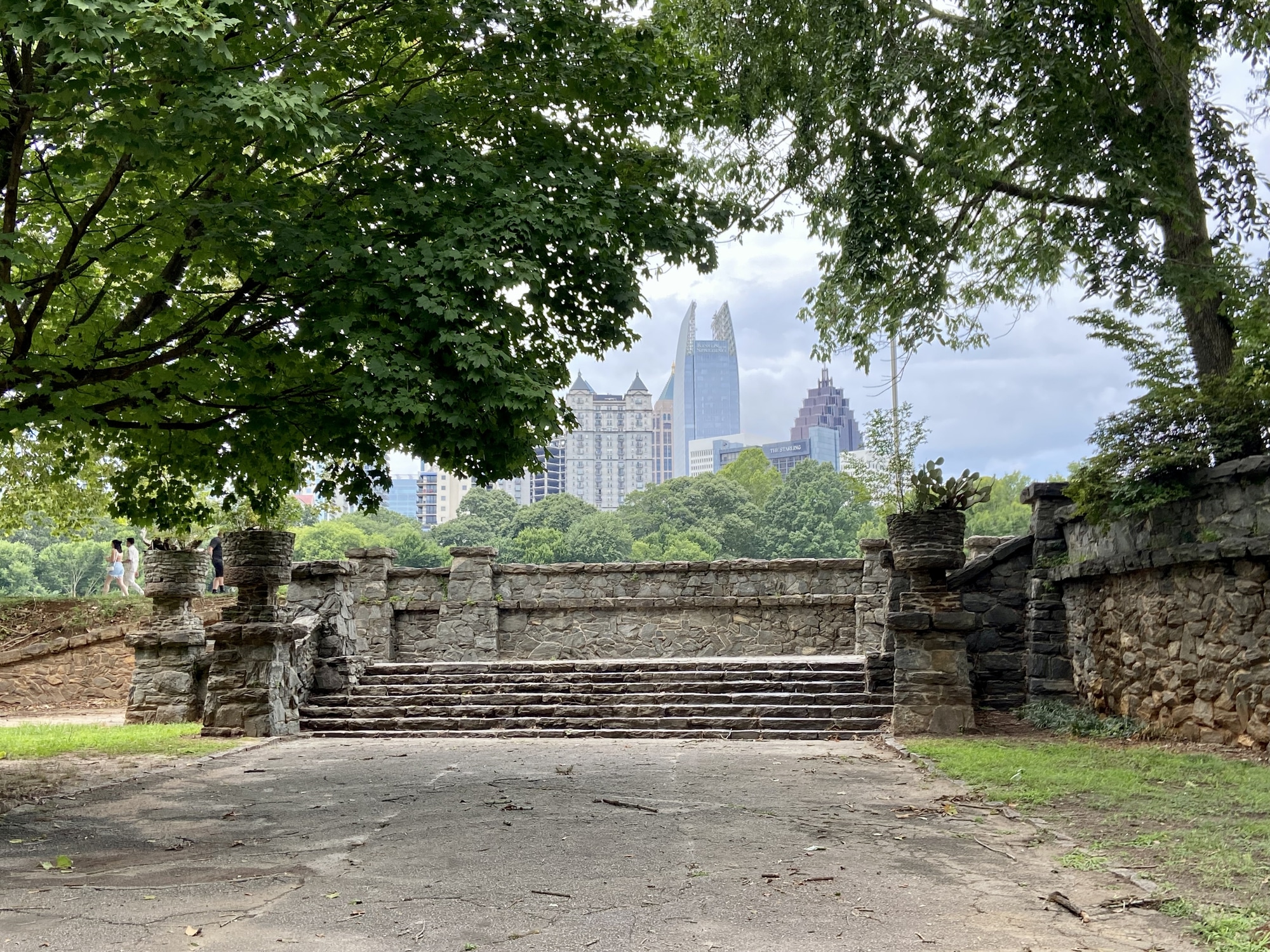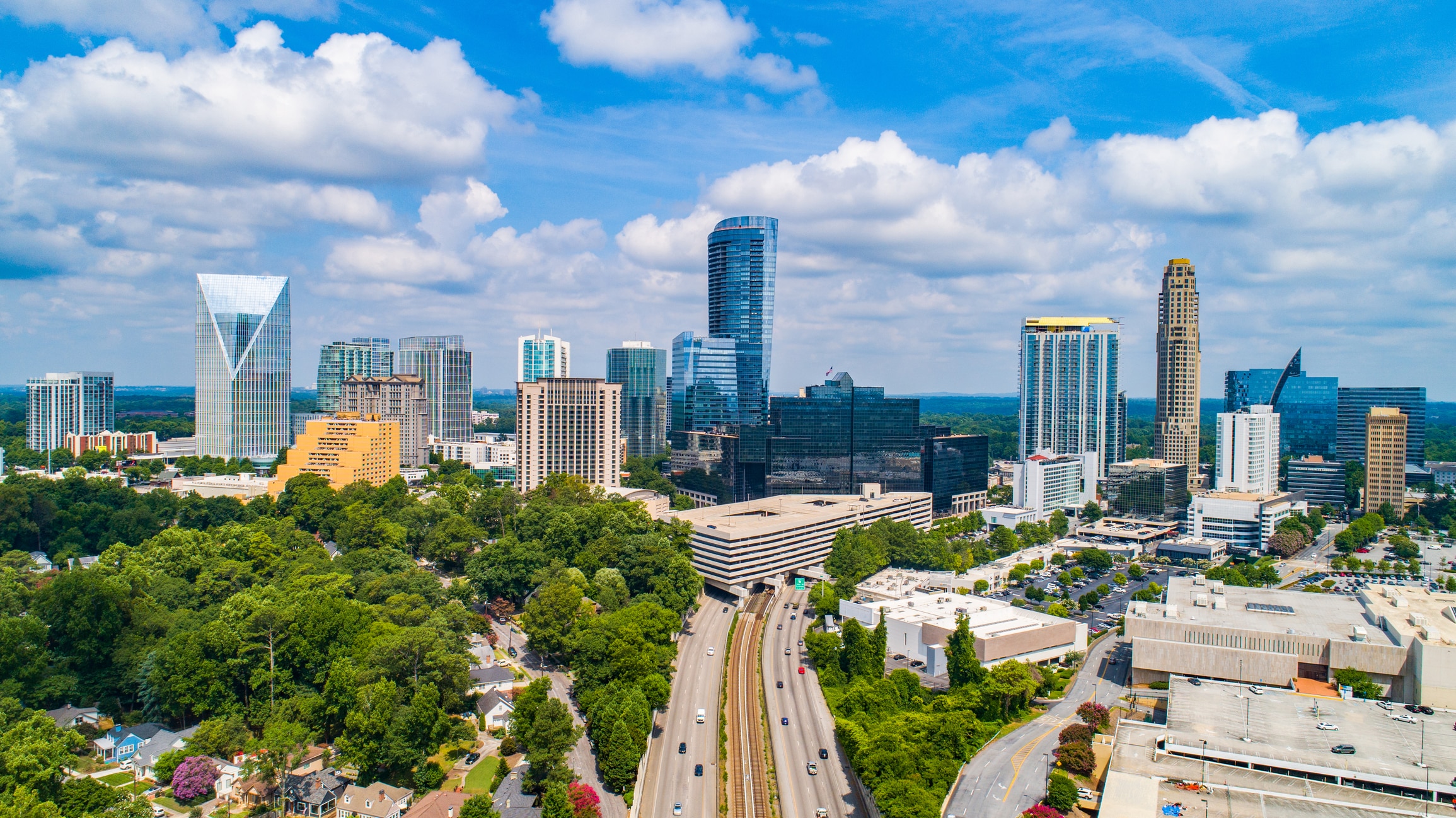A business hub, a music capital, a college town, and a food lover’s dream all in one, Atlanta is a city that doesn’t fit neatly in any box. Living in Atlanta, Georgia means stepping into a place where history and progress exist side by side, where neighborhoods feel like small towns but the skyline keeps growing.
But is Atlanta a good place to live? That depends on what you’re looking for. The cost of living is still lower here than in cities like New York or Los Angeles, but it’s rising fast. Summers are hot, traffic is no joke, and choosing the best places to live in Atlanta takes some careful consideration.
If you’re moving to Atlanta, Georgia, you’ll want to know what you can expect. This guide covers the essentials, from housing and jobs to crime rates and weather, so you can make your move with confidence.
6 Things to Know About Living in Atlanta Before You Make Your Move
Atlanta moves fast, and it’s never lacking things to do. You’ll find roaring crowds at the Mercedes-Benz Stadium, packed patios on the BeltLine, a strong job market, a reliable food scene, and (somewhat) affordable cost of living — at least compared to other major cities.
But moving here takes more than just a love for lemon pepper wings and college football. Before you pack your bags and head south (and buy that Bulldogs jersey), here’s what you need to know about living in Atlanta. Get your moving checklist ready, and let’s dig in.

1. The cost of living in Atlanta is somewhat lower than the national average, but it depends
The cost of living in Atlanta sits about 3% below the national average. That makes it significantly more affordable than New York or San Francisco, sure, but Atlanta isn’t as cheap as it used to be. Housing prices are rising, groceries and utilities aren’t far behind, and depending on where you’re moving from, the savings might not be as dramatic as expected.
Take Chicago, for example. The cost of living in Atlanta is about 7.6% lower than in Chicago, meaning that if someone earns $60,000 in Chicago, they would need only about $55,400 in Atlanta to maintain the same standard of living. But it’s not that simple. At the same time, salaries in Chicago tend to be about 6.7% higher than in Atlanta. Lower housing costs and a slightly cheaper overall cost of living give Atlanta the edge, but let’s be honest, it’s not much of an edge.
There’s another important related question: What salary is needed to live comfortably in Atlanta? Well that depends, too. For a single adult, a minimum of $75,000 per year would cover necessities while still leaving room for savings and discretionary spending. The bottom line is Atlanta remains an affordable alternative to many major U.S. cities, but the days of rock-bottom housing prices and ultra-low expenses are fading fast. If you're moving to Atlanta, crunch the numbers before making the leap.

2. Atlanta’s climate and weather can be hot, humid, and full of surprises
Atlanta likes to keep you on your toes when it comes to weather — and you better like the heat. Summers feel like stepping into a sauna you didn’t sign up for, with highs in the upper 80s and humidity that makes your shirt stick before you finish stepping out your front door. Winters, on the other hand, are mostly mild — until they’re not. Snow is rare, but when it happens, the entire city shuts down faster than you can say “unsalted roads.”
Spring and fall? That’s when Atlanta shines. It’s warm but not suffocating, with just enough cool air to make patio season a real thing. But don’t let your guard down — surprise thunderstorms, tornado watches, and occasional hurricane leftovers can roll through when you least expect them. If you’re moving to Atlanta, pack for every season and keep an umbrella within arm’s reach.
3. Crime and safety in Atlanta depend on where you live
Atlanta’s crime rate gets a lot of attention, but like most big cities, safety depends on where you plant your roots. Some neighborhoods have crime rates well above the national average, while others feel like their own quiet retreats. If you're looking to avoid trouble, Club Forest, Buckhead, and Springlake/Memorial Park are among the safest spots in the city. On the flip side, neighborhoods like Mechanicsville, Vine City, and English Avenue see higher rates of violent crime.
Overall, Atlanta’s crime rate sits above the national average, but those statistics don’t tell the whole story. Most crime tends to be concentrated in specific pockets, and plenty of neighborhoods are as safe as any suburban cul-de-sac. Do your research, pay attention to crime maps, and if you’re moving here, choose a place that fits your comfort level. Atlanta is big enough that you don’t have to compromise.
4. The Atlanta housing market is competitive compared to other cities
Buying a home in Atlanta, Georgia isn’t as easy as it used to be. The city was long known for its relatively affordable real estate — but those days are fading away. The typical home value in Atlanta now sits at $388,548, down 2.4% from last year.
Good news, right? Well, don’t get too excited. Housing demand is still high, and compared to many major metro areas, Atlanta remains a competitive market.
5. Renting in Atlanta costs more than you might expect
Hoping to score some cheap rent in the ATL? Brace yourself. The average rent in Atlanta sits at $1,802. Yeah, that’s lower than in cities like New York or L.A., but it’s still enough to make your wallet sweat.
Deals do exist, but they’re getting harder to find. The city’s rapid growth has continued to keep demand high — and landlords know it. No matter the location in the city, expect competition, quick lease turnovers, and prices that aren’t as low as they used to be. If affordability is your top priority, start your search ASAP and be ready to act fast.
6. Atlanta’s job market is competitive and full of opportunity
If you’re moving to A-Town for work, you’re in good company — literally. The city is home to major players in tech, healthcare, logistics, and film, and with over 3.1 million jobs in the metro area, the economy isn’t slowing down. The major players are transportation and logistics, thanks to Hartsfield-Jackson Airport and Atlanta’s status as a shipping hub.
Unemployment hovers around the national average, meaning jobs are out there, but competition is real — especially in high-paying fields. The median salary sits around $59,000, with management and tech jobs pushing into six figures.
Best places to live in Atlanta
You can find your own way in Atlanta depending on your preferences, but to make it easier, here are three of the best neighborhoods in Atlanta:
Best for families: Candler Park
Candler Park feels like an oasis of small-town life in the middle of the city. Kids ride their bikes to school, neighbors actually know each other, and weekends are spent at the park or grabbing brunch at Flying Biscuit Café. The schools get high marks, and the green space — complete with a golf course and playgrounds — makes it a go-to for families who want the perks of living in Atlanta, Georgia, without the bustle of downtown. If you’re looking for a community-driven neighborhood with charm and convenience, Candler Park might be for you.

Best for young adults: Midtown
Young, ambitious, and ready to trade long commutes for skyline views? Midtown is where you want to be. This is Atlanta’s cultural and social heartbeat — home to the Fox Theatre, High Museum, and Piedmont Park (how about some weekend kickball?). The BeltLine’s Eastside Trail runs right through, so it’s a breeze to walk or bike to bars, coffee shops, and some of the best restaurants in the city. Plus, with major employers and startups nearby, Midtown makes it easy to live, work, and play — and you never have to leave your ZIP code.
Safest neighborhood: Buckhead
In Atlanta, finding that big-city energy without big-city worries is possible, and you’ll find it in Buckhead. This isn’t just one of the safest neighborhoods in Atlanta — it’s also one of the most polished. Stately homes, luxury high-rises, and tree-canopied streets make it feel like an urban retreat, while high-end shopping at Phipps Plaza and top-tier restaurants keep things lively. In these parts, the loudest thing you’ll hear is a leaf blower.

Why Are People Moving to Atlanta (or Not)?
Like any big city, Atlanta has its quirks — but hey, the good outweighs the bad. Of course, traffic can test your patience, summers can test your deodorant, and the housing market keeps getting tighter. On the whole, though, if you desire big city life with a little more ease than the coastal cities offer, ATL might be for you.
Here’s a quick look at the pros and cons of living in Atlanta:
Pros
Strong job market across multiple industries
Lower cost of living than many large cities
Diverse neighborhoods with something for everyone
Excellent food, music, and arts scenes
Access to parks, trails, and outdoor recreation
Milder winters and a long patio season
Cons
Heavy traffic and limited public transit options
High humidity and sweltering summers
Rising home prices and rent
Uneven public school quality depending on neighborhood
Bottom line: If you can handle the heat — literally and figuratively — living in Atlanta can be a smart, rewarding move, no matter how far you’re moving from.

Is Atlanta Calling Your Name?
Atlanta isn’t for everyone, but for many, it’s the perfect mix of opportunity, culture, and Southern charm. With a solid job market, diverse neighborhoods, and plenty to do, moving to Atlanta makes sense — if you don’t mind sweating a lot.
If you’re ready to make the move, Colonial Van Lines can help. With over 50 years of experience in long-distance moving, our expert movers make the process seamless from start to finish. Get a free quote today and let’s get you settled in the A-T-L.

